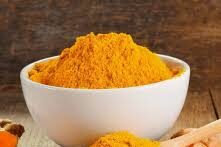Physical Address
304 North Cardinal St.
Dorchester Center, MA 02124
Physical Address
304 North Cardinal St.
Dorchester Center, MA 02124
A little bit of spice can go a long way—whether that’s to add color, heighten the taste, or enrich the aroma of food. Research has shown how some of the most commonly consumed herbs and spices can improve our metabolic health.

And results are particularly applicable because the studies included used culinary doses of these ingredients—aka the teaspoon here and tablespoon there that home cooks tend to use in the kitchen.
The next time you freshen up your spice cabinet, look to these spices that appeared to have the most blood-sugar-balancing and cholesterol-lowering benefits.
Ginger is a flowering plant valued for its root, which is widely used in cooking and traditional medicine. The health benefits are primarily attributed to gingerol, a bioactive compound that possesses both anti-inflammatory and antioxidant properties.

According to a comprehensive review, research on ginger demonstrated beneficial effects on blood sugar levels, insulin sensitivity, cholesterol measurements, and triglyceride concentrations. Furthermore, four of five studies examining inflammation markers showed that ginger consumption led to significant improvements in these indicators.
These health advantages were observed with daily consumption of 1.5 to 3 grams of ginger root. This amount translates to approximately 1 tablespoon of freshly grated or minced ginger, or about ¾ teaspoon of powdered ginger (though using a kitchen scale would provide the most accurate measurement).
Turmeric is a traditional Ayurvedic root related to ginger. This spice contains powerful antioxidant compounds known as curcuminoids, with curcumin being the most extensively researched. Raw turmeric powder contains approximately 3.14% curcumin by weight.
Among scientific studies examining culinary turmeric consumption and health outcomes, the majority investigated its effects on blood lipid profiles, including triglycerides, total cholesterol, and LDL cholesterol. Research confirms that this spice can effectively reduce elevated levels of these health markers.

Within this review, three studies specifically examined turmeric’s influence on inflammatory markers, with two demonstrating significant reductions in inflammation levels. These health benefits were observed with daily consumption of approximately 2.1 to 2.4 grams of turmeric, equivalent to between one-half and one teaspoon.
The bioavailability (the body’s ability to absorb and utilize this compound) is remarkably poor. Although combining turmeric with black pepper can enhance curcumin absorption, many commercial turmeric supplements are specifically formulated to maximize bioavailability, ensuring you receive the full spectrum of benefits.
Research on turmeric supplements is more extensive than studies on the culinary spice itself, particularly regarding inflammation reduction and joint health benefits. Therefore, if these are your primary health concerns, consider taking a targeted supplement alongside incorporating turmeric into your cooking—whether in curry dishes, as a seasoning for chicken, or mixed into scrambled eggs.
This kitchen staple is derived from the inner bark of Cinnamomum trees and has been traditionally valued for its therapeutic qualities due to its rich antioxidant content. Contemporary studies on cinnamon have explored its potential in blood sugar management, particularly for individuals with diabetes.
One mechanism by which cinnamon may help reduce blood glucose is by decelerating carbohydrate digestion in the digestive system, thereby moderating the rate at which glucose enters the bloodstream.

Daily consumption of between 1 and 6 grams (approximately one-half to 2 teaspoons) of cinnamon has demonstrated the ability to reduce fasting blood sugar levels by 10 to 29%.
Feel free to incorporate cinnamon into your diet by adding it to oatmeal, homemade granola recipes, coffee beverages, and various smoothie combinations.
To read more, open the link below :